- Learn the biomechanics and sport specific demands of rock climbing
- Understand how to provide proper management for musculoskeletal rock climbing injuries including body regions of the neck, shoulder, elbow, forearm, wrist, hand, finger, back, hip, knee and ankle
- Support climbing injury management with peer reviewed research studies and learn in-depth treatment interventions for climbers including climbing specific exercises that address mobility, muscle performance and climbing specific movement
Level
Includes
- 6 units of pre-recorded lectures (1.5 – 3.5 hrs each unit) on climbing injury
- Over 800 minutes (13 hours) of lecture content
- 144 minutes of learning assessments
- Extensive video library of rehabilitation exercise and climbing movement
- Detailed step-by-step protocols for climbing injury rehabilitation
Course Certificate
- Course completion certificate for 720 minutes (12 hrs) of course material
Is there a discount for Physical Therapy Students?
- Yes! In order to support the growth and develop of physical therapy students, we have created a coupon code for 20% any course. Email your student ID to info@theclimbingdoctor.com to receive a coupon code for 20% off of the course.
Continuing Education Content Access
- Participants have unlimited continuing ed course lecture video access for 3 years after enrollment
- All con-ed course PDFs are downloadable allowing lifetime access
Unit Topics
- Unit 1: Movement
- Unit 2: Neck and Shoulder
- Unit 3: Elbow and Forearm
- Unit 4: Wrist and Hand
- Unit 5: Fingers
- Unit 6: Back, Hip, Knee and Ankle
Money Back Guarantee
- There is a 30-Day Money Back Guarantee. If you are not satisfied with this product for any reason, email returns@theclimbingdoctor.com with your order number to process a refund.
Approved for Continuing Eduction Credit
- This course series is approved for 12 continuing education contact hours in California (CPTA #23-603) and for all states that offer reciprocity with California including: Alabama, Arizona, Colorado, Connecticut, Washington DC, Delaware, Georgia, Hawaii, Idaho, Indiana, Iowa, Kentucky, Maine, Massachusetts, Michigan, Mississippi, Missouri, Montana, Nebraska, New Hampshire, North Carolina, North Dakota, Oregon, Pennsylvania, Rhode Island, South Dakota, Utah, Vermont, Virginia, Washington, and Wyoming. If you have questions pertaining to your individual state requirements, please refer to your state’s licensing authority. We are happy to provide each registrant with documentation needed to submit for approval to their own licensing board for individual approval. Requests can be submitted to info@theclimbingdoctor.com.
What is the difference between the “Rock Rehab Hybrid Course Series” and “Rock Rehab Online Course Series”
- The online content from the Rock Rehab Hybrid Course Series is the same online content from the Rock Rehab Online Course Series. The main difference is that the Rock Rehab Hybrid Course Series includes an additional 9 hours of zoom live sessions to help synthesize the material and apply it to rock climbing patient cases.
Instructor
- Jared Vagy is a doctor of physical therapy with a focus on treating rock climbing injuries. In addition to his doctoral degree, he has completed a one-year residency in orthopedics and a one-year fellowship in movement science. He is the author of the Amazon #1 best-seller “Climb Injury-Free,” has published numerous articles on injury prevention and lectures on the topic internationally. Dr. Vagy is on the teaching faculty at the University of Southern California, one of the top doctor of physical therapy programs in the United States. He is a board-certified orthopedic clinical specialist and a certified strength and conditioning specialist. He is passionate about climbing and enjoys working with climbers of all ability levels, ranging from novice climbers to the top professional climbers in the world.

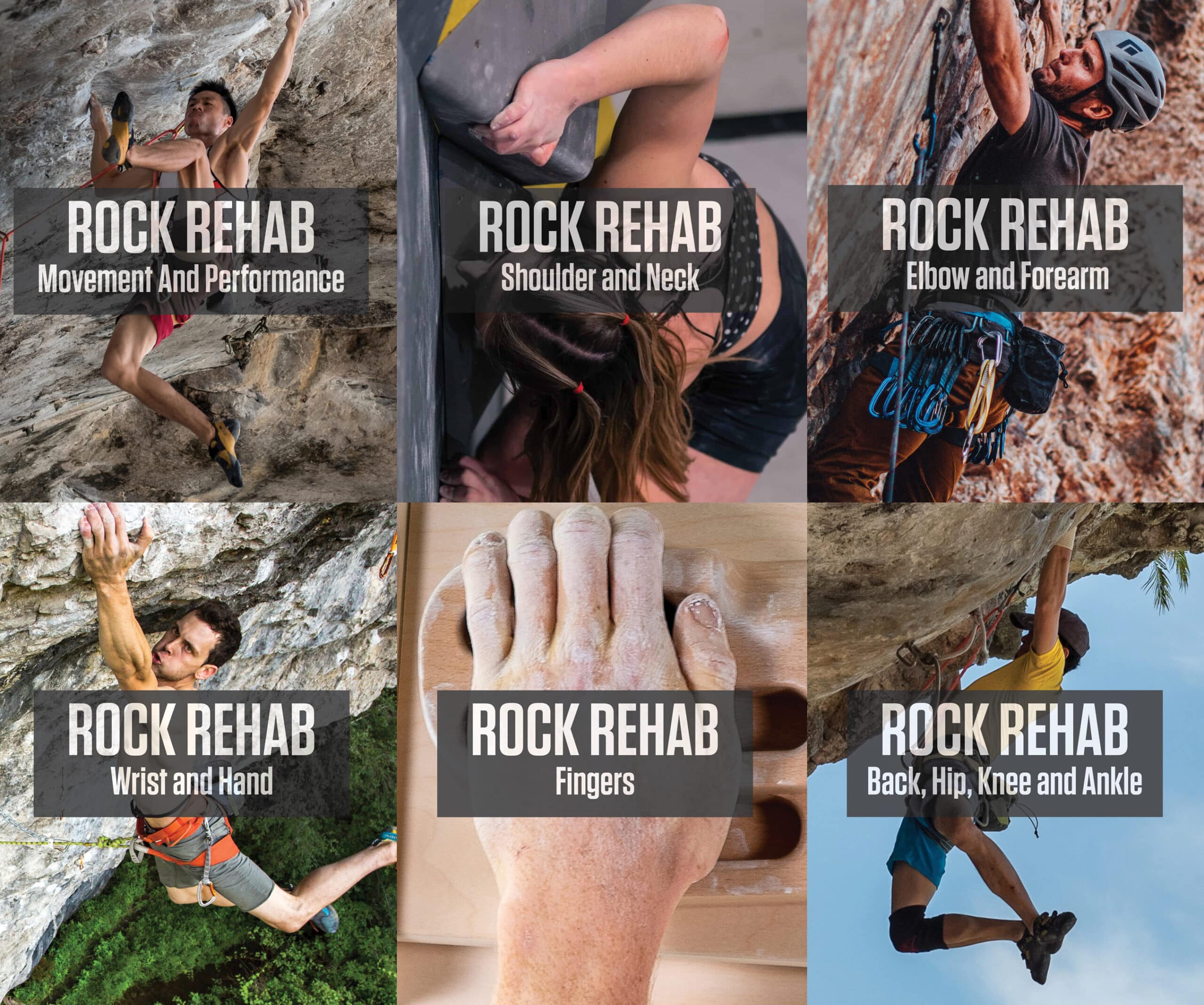
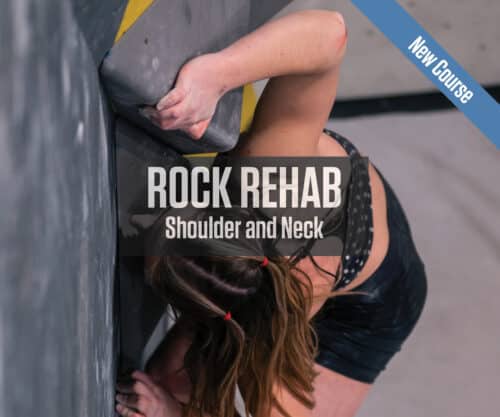
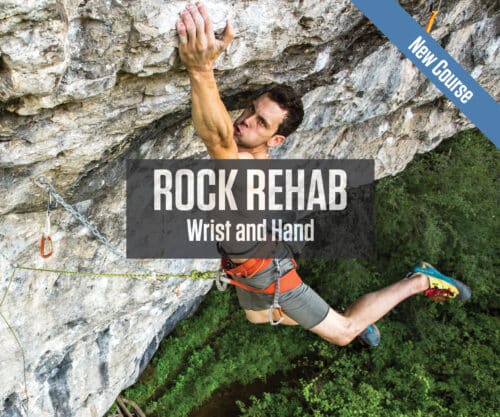
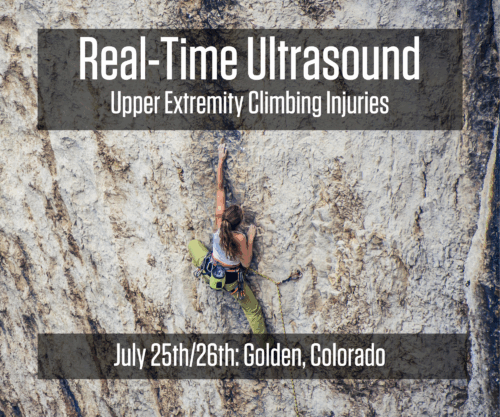
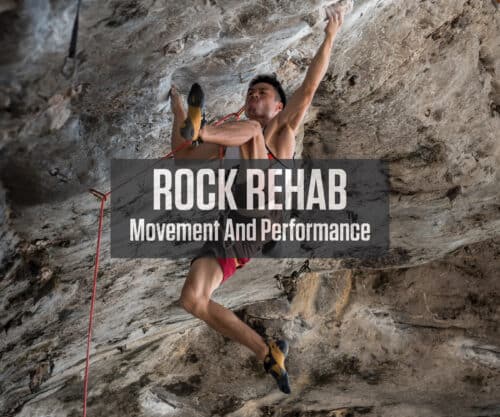
Jose Valero –
It is a course that brings different knowledge for therapists who work with climbers. From the diagnosis, treatment and re-education for the return to climb. In each section new knowledge was provided that I did not know before.
Kurtis Munro –
Good supportive research. Great bringing concepts together for what to do in certain patients situations. I though it was a great course and increases knowledge of evidence informed climbing care.
Heide Jean R Tan –
The course is an excellent tool to provide you with the knowledge that you need to become a great rock climbing clinician. Dr. Vagy really hammers down the importance of not only progressive strengthening but the inclusion of functional exercises into your POC. He provides you with specific detailed case studies with clips of the athletes climbing on the wall. It is a great way to be introduced to common movement errors in rock climbing and to start honing your ability to spot those errors.
Tony Tannous –
IT is an essential course for physical therapists/climbers of all levels who want to improve their performance, prevent injuries, and recover from climbing-related injuries. The course is designed to teach therapits about the importance of proper body mechanics, injury prevention, and injury management.
The course is well-structured and includes a comprehensive overview of the biomechanics of rock climbing. The instructors cover topics such as muscle imbalances, joint mobility, and stability, and the importance of core strength and balance. They also provide specific exercises and drills that target these areas and help climbers improve their technique and overall performance.
One of the most valuable aspects of the course is its emphasis on injury prevention. The instructors provide detailed information on common climbing injuries, such as rotator cuff strains, finger and wrist sprains, and lower back pain. They also teach climbers how to recognize the early signs of these injuries and provide tips on how to modify their training and climbing habits to avoid them.
In addition to injury prevention, the course also covers injury management. The instructors teach climbers how to manage and recover from common climbing injuries, including specific exercises and stretches that can help with the healing process. They also provide information on when to seek professional medical attention and how to work with a physical therapist or other healthcare professional to manage more serious injuries.
Overall, I highly recommend the physical therapy for rock climbing course to any therapist who wants to improve their technique, prevent injuries, or treat an injury. The instructor is knowledgeable, experienced, and passionate about climbing, and their insights and expertise are invaluable for climbers as well as therapists of all levels. Whether you’re a beginner or an experienced climber, this course is an excellent investment in your climbing skills and overall health.
Alexandre Gariepy –
The course used evidence-based practice and innovative ways to show specific aspects of the sport and translation to the sport. The visuals were a great way to show a standardized way to apply techniques. I really liked the case studies and the application of what we can see in clinic to sport specific or function specific. I can translate this to a lot of other sports I work with. How to use more objective data and video analysis was helpful and I like how the course always reinforced the rehab pyramid. It helps to have a structured intervention and plan.
Peter Storm –
The course helps gain an understanding rock climbers needs and assessment of movement to best assist patients with rehabilitation and return to sport.
Alan Ballantine –
The delivery of material was excellent with a huge amount of information. The course really gets into the information and techniques needed when treating climbers. College courses just cannot approach the intricacies in the same way this series does.
Jamie Flanagan –
Enjoyed the specificity to climbing and movement analysis. Bringing more thought to test positions/maneuvers with climbing motions. Specific to PT, this course is very beneficial to not only patients who rock climb but I am also finding it beneficial for the variety of treatment ideas for patient who don’t rock climb. I also really enjoy the movement systems approach and want to continue down that approach to physical therapy.
Alexis Lasalle –
A comprehensive course on common and less common climbing injuries. The course allows you to move from theory to practice without difficulty. Definitely an essential course if you treat climbers in your clinical practice.
Conor Thompson –
Evidence based research and video demonstrations of evaluations and interventions. Great course to improve your ability to asses and treat climbers head to toe with evidence based clinical applications.
Kayla Eagle –
This course is a must if you work with climbers. It condenses all of the research done on climbing injuries and rehab specific to climbing injuries. The material is presented in an easy to follow course on what the most common injuries are for each joint, the relevant anatomy, and an easy to follow pyramid approach to rehab these injuries that are very unique to climbing.
Tsai Yong Chu –
The material was presented clearly. I enjoyed the analysis of climbing on the wall.
Andrew Koenig –
This provide those clinicians that area treating climbers (or climbers themselves) the knowledge, skills, and abilities to effectively manager climbers impairments.
Cory Clyde McKinnon –
This course was fantastic! I enjoyed the information and application to climbing with great examples of rock climbing injuries and how to work them through a rehab protocol. I would definitely recommend this class to anyone interested in treating rock climbers.
Amanda Fetzer –
The video examples on how to analyze different movements were really helpful. The case examples were useful as well. It was a great look at the entire body of a climber and how to start piecing together how they move on the wall with how they are presenting in the clinic
Erika Nelson-Wong –
Very nice to have the slide decks for each topic. Videos were very well done. Organization and structure worked well for me. I also like having the quizzes at the end of each unit. I’ve been practicing for a lot of years, and have spent the past 15 in higher ed, recently returning to the clinic on a limited basis and working with a lot of climbers. I have already had the opportunity to use many of the techniques and all of it was a great review. I especially appreciate the taping techniques as this is an area where I never received much training. The kinetic chain section for Ankle/Knee was focused on low back (which was very useful) – would have like more content there specific to ankle, knee and hip. There were a few errors in the slides (can’t be helped) – might do a refresh at some point to correct those. I love a bit of cheese, but the ‘dirt bag’ tips are sometimes a bit much! Although I do love the low-tech, cheap and easy approaches you show!The application of foundational principles to fit the needs of a specific athletic population is great. For practitioners who may not be climbers, the movements are explained well with appropriate terminology and really highlight the particular and unique demands of the sport. Thanks for providing this on-line content!
Julie Yang Eschbach –
This course provided a great step-by-step rehab protocol for physical therapists to diagnose and treat common climbing injuries. It was easy to follow along and exam, assessment, and treatment will be easy to apply in the clinic setting. great course!!!
Rebecca Wezensky –
This is a great course to help make your treatment for climbers more specific and sport like. Thanks for putting this together!
Haocheng Zhang –
The course seriers are comprehensive regarding management of rock climbing related injuries. The treatment model and ideas are very helpful to learn and may be applicable to other sport-related injuries.
Marie-Claude Lessard-Bérubé –
The information was very clear and well divided in different subjects. I really appreciated the protocol documents that show how you progress your exercices over time. The course gives a lot of practical tools to start to treat climbing injuries with confidence!
Marcella Brown –
This course is a great ortho review even if you do not treat a high volume of climbers. Very clear explanations in the video lectures. Can apply knowledge to other populations.
Jac Brown –
This course offers medical providers a comprehensive understanding of rock climbing injuries, focusing on prevention, diagnosis, and treatment. By integrating the latest research and practical techniques, attendees will enhance their ability to manage both acute and chronic conditions specific to climbers. Additionally, the course emphasizes tailored rehabilitation strategies to ensure effective recovery and long-term athlete performance resilience.
Elliott Stern –
This course is great for clinicians getting into the world of rehabbing rock climbers. It is a very well thought out, organized, and detailed lesson plan, that is easy to follow and put into practice. I have already put much of what I learned in this course into practice!
Scarlett Helbock –
This course provided a step by step framework to help organize the clinicians initial movement assessment and to help guide treatment protocl. This course provides you with mobility, strength, and movement coordination exercises that you can immediately begin to implement into the clinic the next day. I think the course was great and extremely applicable.
Danielle Conroe –
Concrete protocol for pulley injuries based on level of injury and return to climbing protocol also very practical.
Michelle Montemayor –
This course is a very thorough course for physical therapists to help evaluate and treat rock climbers. It was excellent in providing information on specific medical diagnosis throughout the body and educating on how to put it together in relation to getting the rock climber back to climbing.
Karen Lovely –
I found that this course helped me take my knowledge as an orthopedic PT and apply it to more specifically evaluate and treat rock climbers. I especially enjoyed the series on the upper extremity including the shoulder, elbow, wrist and hand.
Laurianne Roberge –
Really applicable to a clinical setting. A lot of tools to try in the clinic right away.
John Kuhn –
This course educates physical therapists like myself on how to take our clinical knowledge and experience and apply it to rock climbers. Evidence was always presented to support interventions as well. Very comprehensive. Well presented.
Erin Hansen –
This course helps providers apply basic and advanced rehab concepts to the incredibly specialized world of rock climbing. The course is well suited to providers across the spectrum of experience and with a range of access to specialized tools and equipment. The excellent organization of the course and the instructor’s clear communication style made the course incredibly easy to follow and learn from.
Cindy Zingleman –
Good overview of climbing injuries and how to take information from the wall to the treatment table and back. Thank you for all the time and effort put in to making this course! Great info.
Nicolas Tanguay –
Good course. Easy to apply.
Rachel Contello –
This course expands upon a general orthopedic foundation to apply this knowledge to the special population of rock climbers. It includes unique considerations for this population including the injuries and demands on the body rock climbers face as well as specific protocols for return to sport.
Robin Martinez –
Crash course on common climber injuries that you would come across even in a generic outpatient clinic. Pyramid for treatment can parallel to any return to sport injury.
Katinka Gács –
Everything was great, nicely detailed, really practical. Thank you!
Emily Josephson –
This course provides greater insight to the demands of climbing on different parts of the body. It also provides an easy to understand structure (pyramid) of how to go about treating this population. Really liked use of real patients/scenarios; and use of visuals. Also got some awesome ideas for exercises/cues to give. Pulley/finger injury section helped me the most